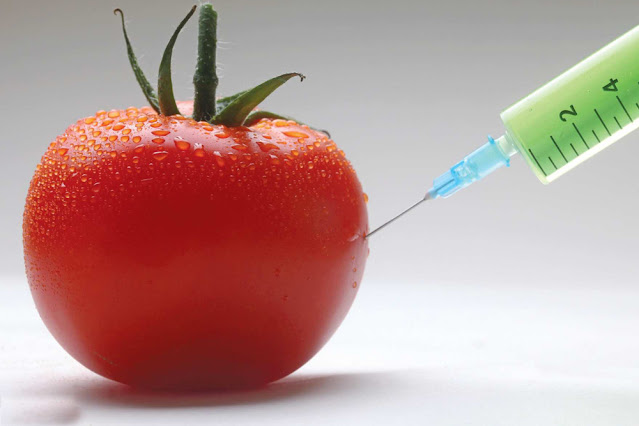The Global Genetically Modified Crops Market is estimated to driven by Increasing adoption in developing nations
 |
| Genetically Modified Crops Market |
The growing Genetically Modified Crops market will
exhibit the highest pace owing to rising population and increasing demand for
food. Genetically modified crops or GM crops are plants used in agriculture,
the DNA of which has been modified using genetic engineering methods. This allows
the incorporation of desirable traits to the plants such as insect resistance,
herbicide resistance, drought resistance, virus resistance or enhance
nutrition. Genetically modified maize, cotton, canola and soybean are
extensively cultivated globally. Rising population has significantly increased
the demand for food globally. Genetically modified crops help meet the food
demand by providing higher yields and enhancing crop survivability, qualities
pivotal in global food security.
The Global Genetically Modified Crops Market is
estimated to be valued at US$ 126.99 Bn
in 2024 and is expected to exhibit a CAGR
of 11% over the forecast period 2024 To 2031.
Key Takeaways
Key players operating in the Genetically
Modified Crops Market are PPD Inc., Icon Plc, Syneos Health, Laboratory
Corporation of America Holdings, and Charles River Laboratories International
Inc., among others. Growing population worldwide has considerably increased the
demand for food. As population increases, so does the demand for food.
Genetically modified crops help meet the rising food demand by providing higher
yields through in-built resistance towards diseases and insects as well as
drought resistance. Technological advancements have enabled faster and more
effective genetic modifications of desired traits in crops. This has augmented
the use of GM crops globally.
Market Trends
Increasing adoption in developing nations- Developing nations like India,
China and Brazil have high population density and increasing income levels.
Such nations are increasingly adopting GM crops to meet the domestic food
demand. This is one of the key trends driving the market.
Development of drought-tolerant varieties- With changing climatic conditions,
drought has emerged as a major threat to global food security. Market players
are extensively working on developing drought-tolerant genetically modified
varieties of staple crops. This is another important market trend.
Market Opportunities
Increasing investments in R&D activities- Steady investments by
government and private players in research and development of GM crop
varieties, especially of staples, present lucrative opportunities.
Development of insect-resistant and virus-resistant varieties- Opportunities
exist in developing genetically modified varieties that are resistant to major
crop damaging insects as well as viruses. Such varieties can ensure higher and
consistent yields.
Impact of COVID-19 on Genetically
Modified Crops Market Growth
The COVID-19 pandemic had a notable impact on the genetically modified
crops market worldwide. The lockdowns imposed by various governments disrupted
the supply chains and delayed crop production. Farmers faced labor shortages
and difficulties in procuring seeds, farm equipment, fertilizers and other
supplies on time due to strict mobility restrictions. This led to uncertainty
in yield and crop quality. However, genetically modified seeds that are
resistant to diseases and pests helped minimize crop losses during the
pandemic. The demand for GM seeds remained stable compared to conventional
seeds as they reduce dependency on agrochemicals and manual labor.
As lockdowns eased in 2021, farmers focussed on recovering losses from the
previous year. They increased acreage under GM crops which are high yielding
and offer built-in protection. This fueled market growth despite lingering
supply chain issues. Consumer demand also improved as economies reopened and food
service sector recovered. However, the impact of rising input costs due to
inflation poses a new challenge. Stable crop production through GM technology
will remain critical to ensure global food security in the coming years. The
market is expected to grow steadily supported by new product innovations,
expansion in developing countries and recovering demand trends post-pandemic.
United States Genetically Modified Crops
Market
The United States accounts for a major share of the global GM crops market
in terms of value. Around 93% of the country's soybean crops and 92% of corn
crops are genetically modified owing to the high demand from the agriculture,
food and feed industries. Leading biotech companies are based in the US and
have contributed to its dominance in GM technology development and seed
production over the years. The pandemic disrupted crop supply chain but stable
domestic demand and exports to Asia-Pacific and Latin America regions helped
mitigate losses in the US market. It is expected to grow at a steady rate
during the forecast period supported by advancements in gene-editing
applications for major cash crops.
Brazil Genetically Modified Crops Market
Brazil is one of the fastest growing markets for genetically modified crops
globally. Soybean is the top GM crop in Brazil covering over 50% of the
country's arable land. The government strongly supports agricultural
biotechnology and large farm sizes allow for rapid commercialization of new
seed varieties. However, COVID-19 impacted overall crop production due to
delays in imports of agrochemicals and machinery from China. As the pandemic
situation stabilizes, Brazil's GM market is poised to expand further driven by
rising meat exports, cultivation of biotech maize and development of disease
resistant sugarcane varieties through local R&D initiatives. Investment
promotion policies will aid market penetration in new regions of the country.
Get more insights on Genetically
Modified Crops Market



Comments
Post a Comment